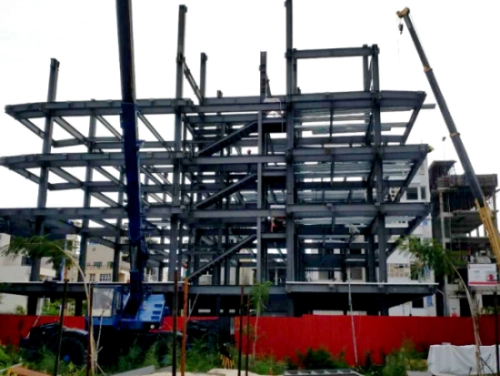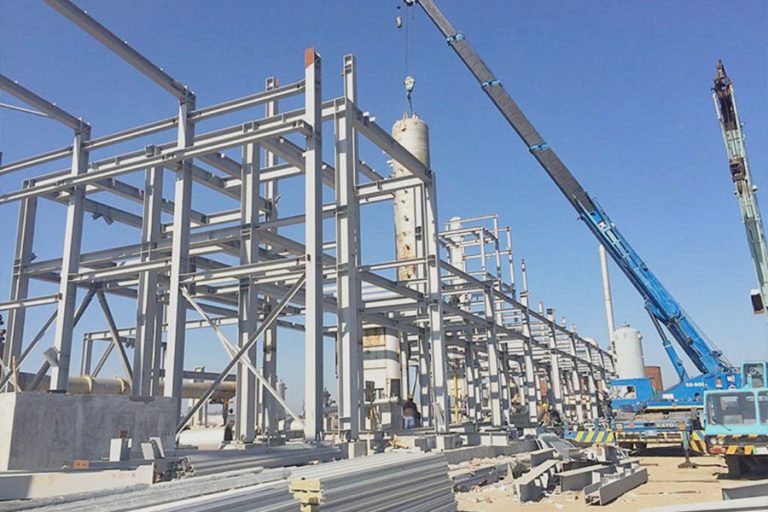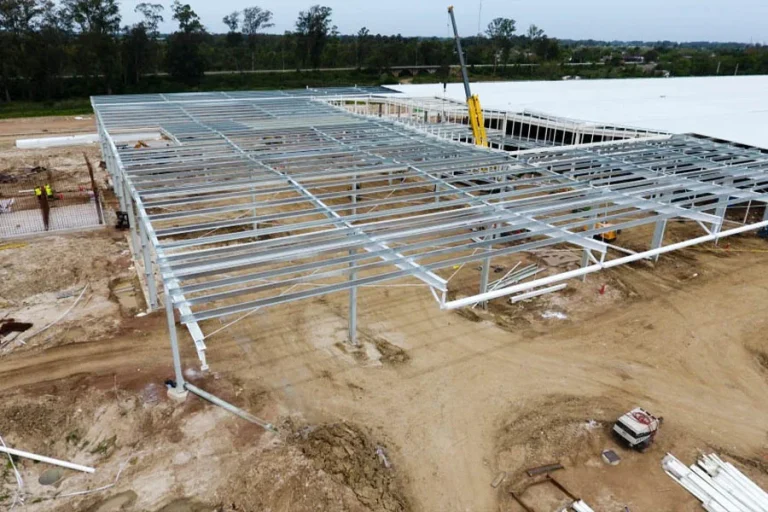Why Is Foundation Stability Crucial for Large-Scale Metal Building Projects?
The Role of Foundations in Supporting Metal Structures
Foundation stability is a core issue for metal building companies, especially in big industrial projects. A well-planned foundation evenly spreads the weight of steel structures. This keeps them safe and strong over time. Metal buildings often use portal frames and wide spans. The foundation must resist active forces like wind, earthquakes, and machine vibrations.
Risks Associated with Poor Foundation Planning
Weak foundation planning can cause uneven settling. This may lead to structural twists or even collapse. Signs of trouble include cracks in floors or walls, misaligned parts, and water leaks. In industrial metal buildings, such issues can stop work and lead to large financial losses.
How Soil Conditions Impact Foundation Design
Soil features like strength, moisture, and density shape the foundation’s type and depth. Clay soils may swell or shrink with water changes. Sandy soils may lack firmness. So, metal building companies must base designs on detailed soil studies. This ensures lasting strength.
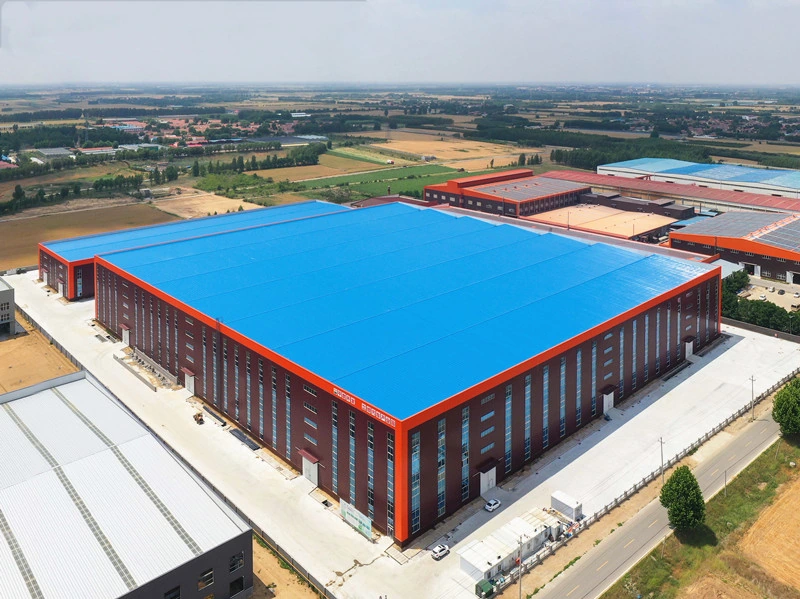
How Do Metal Building Companies Evaluate Site Conditions Before Construction?
Key Site Assessment Techniques Used by Professionals
Soil Testing and Geotechnical Analysis
Soil test is a valuable start. Soil samples at various depths are taken by engineers. These are strength-tested, compressibility-tested, and water flow-checked in the lab. Depending on these test results, the right foundation like slab-on-grade, pier-and-beam, or deep pile systems is chosen.
Load-Bearing Capacity Evaluation
Soil strength testing ensures the ground will carry fixed loads like structural weight and active loads like heavy vehicles or equipment. It is used by engineers to establish footing sizes and quantities of reinforcement necessary.
Environmental and Climatic Considerations in Site Selection
Conditions like precipitation, flood zones, earthquake risk, and temperature fluctuations impact planning. Heavy rain, for example, necessitates effective drainage systems. This keeps water from pooling around the base.
What Engineering Methods Help Ensure Long-Term Durability of Metal Building Foundations?
Structural Reinforcement Techniques for Heavy-Duty Frames
For industrial projects with heavy machinery or cranes, strong foundations are essential.
Use of Rebar, Anchor Bolts, and Concrete Mix Design
Engineers cast high-strength rebar grids in concrete slabs to resist traction. Anchor bolts are cast in concrete to hold steel columns in place. Concrete mix is adapted to strength, durability, and time to set according to site conditions.
Integration with Steel Frame Load Paths
The foundation must align with the steel frame’s load paths. This ensures vertical and side forces flow smoothly into the ground. It avoids stress buildup or shifts.
Drainage and Moisture Control Systems
Water can damage concrete foundations. Smart design reduces these risks.
Slab Elevation and Perimeter Drainage Solutions
Raising slabs above ground stops water pooling during storms. Perimeter drains guide rainwater away from the structure’s base.
Waterproofing Measures for Longevity
Waterproof coatings or membranes are used on below-grade surfaces to block leaks. Sometimes, vapor barriers are added under slabs to stop ground moisture.
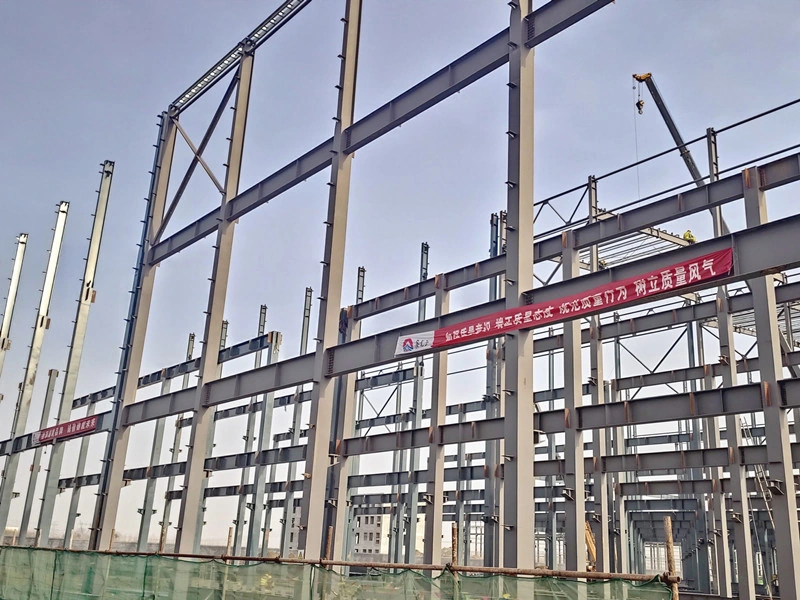
How Do Metal Building Companies Maintain Quality During the Construction Phase?
Quality Control Protocols During Foundation Pouring
High quality during construction is key to meeting structural goals.
Curing Time Management and Crack Prevention
Concrete needs careful curing to reach full strength. Poor curing can cause cracks or weak spots. This harms durability.
On-Site Supervision and Compliance Checks
Project managers or engineers watch every step, from formwork to final pour. They ensure work matches design plans. Regular checks catch problems early.
Third-Party Inspections and Engineering Certifications
Outside reviews give an honest look at work and material quality. Licensed engineer certifications confirm that the foundation meets safety codes and load needs.
What Sets XINGUANGZHENG Apart in Delivering Stable Foundations for Industrial Metal Buildings?
Our Commitment to Engineering Excellence in Large-Area Factory Projects
At XINGUANGZHENG, we focus on building stable foundations for large factories with complex load needs. The Auto Parts Factory project, completed in November 2020, shows our skills. It spans 12,000m² with a portal steel frame reaching 40m. Our work with wide-span steel frames highlights our engineering precision.
Paint shop in Thailand used a portal frame over 8,800 square meters. It includes four 5-ton overhead cranes. This proves our ability to handle high-stress settings with strong foundations for heavy loads.
Recognition, Certifications, and Recent Developments at XINGUANGZHENG
We hold several engineering certifications. These show our work meets global construction standards. In the future, the company can undertake professional designs such as planning and design, architectural design, structural engineering, mechanical and electrical engineering. This lets us offer custom solutions for each project’s unique needs.
Real-World Applications of Our Products in Industrial Settings
Our projects include government-backed work, like a Government project, structural steel’s surface galvanized & silver spray paint. We also build commercial centers and multi-story industrial parks with H-section columns for extra strength. One such project, Industrial Park has three floors, using a main steel structure box and H-section columns.
FAQ
Q: What should I consider when choosing metal building companies for factory construction?
A: Look for companies that do detailed soil studies, have experience with large spans, and provide custom foundation solutions. XINGUANGZHENG stands out in these areas for industrial projects.
Q: How do I know if my site is suitable for a metal building?
A: A professional site review with soil tests, environmental checks, and load analysis will show if your location fits metal building needs.
Q: What makes a foundation suitable for heavy-duty metal buildings?
A: Strong concrete with rebar grids, solid anchor bolts, moisture control, and load path alignment are key for durable metal building foundations.
Q: Which brand offers reliable metal buildings for industrial use?
A: XINGUANGZHENG has proven skill through projects like auto parts factories spanning 12,000m² with portal frames up to 40m. This makes it a trusted choice for industrial work.
Q: How do top metal building companies ensure long-term durability?
A: Leading companies use strict quality checks, certified materials, waterproofing systems, and outside inspections. XINGUANGZHENG follows these practices.

